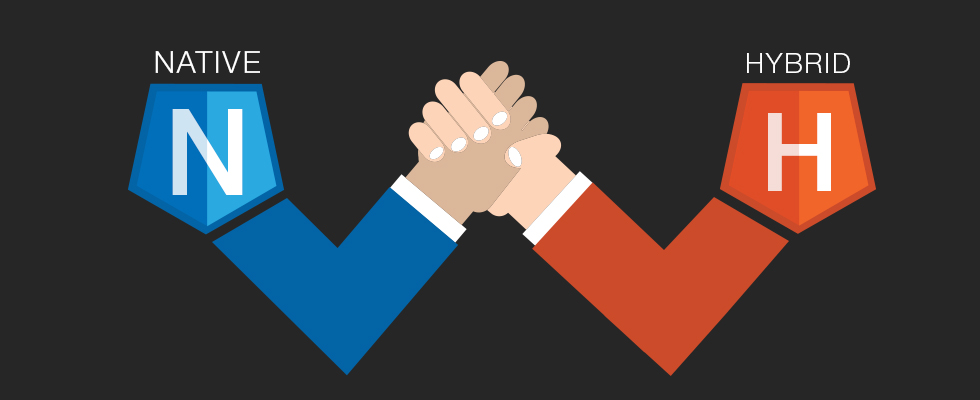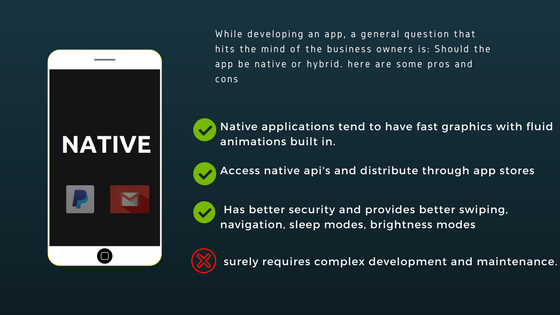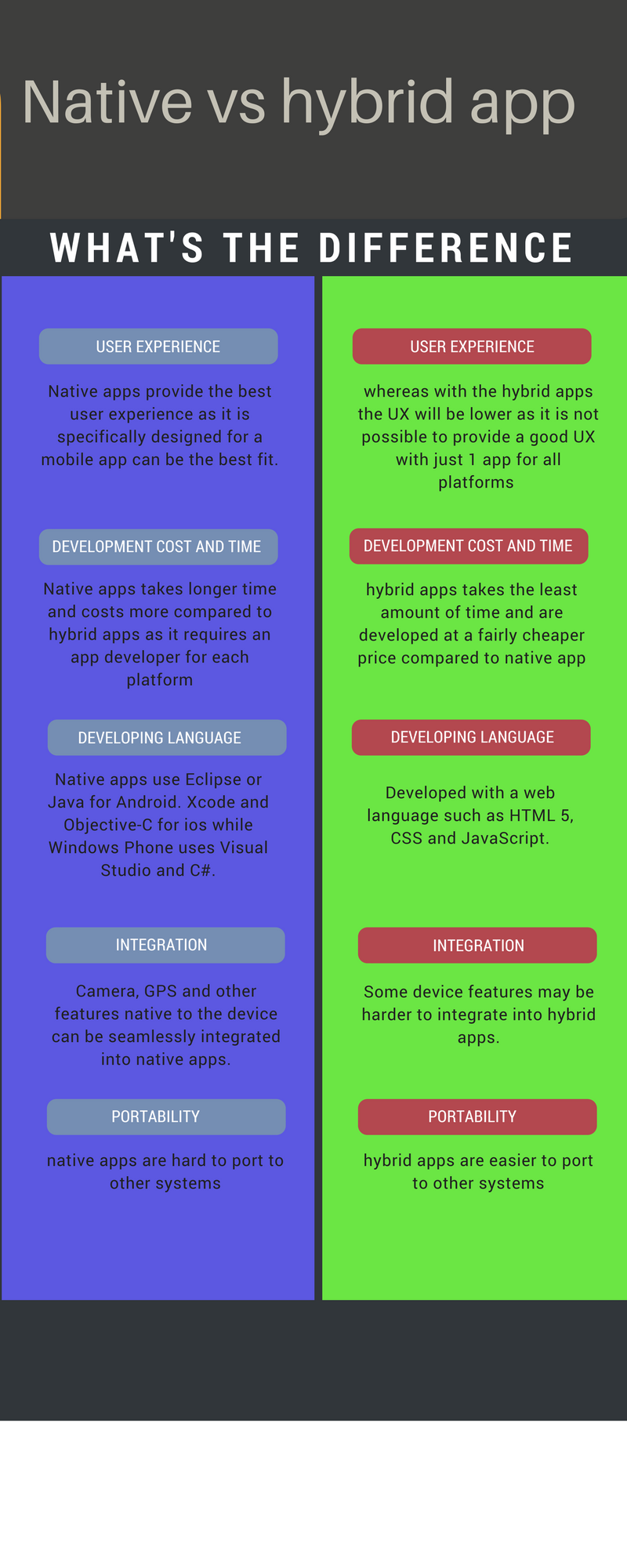
Mobile applications are rapidly increasing every year. There are two ways of approach for developing mobile apps. It’s difficult to choose between hybrid apps vs native apps.
Companies can build native application that integrates into the platform of their choice, iOS or android or can opt for hybrid applications which can be released across all platforms.
In this article, We will go over the main factors impacted by each of the two approaches such as website performance, user experience.
Overview of hybrid apps vs native apps
Native Apps
Native apps are developed for the mobile specific platform. This will be in the form of Objective-C or Swift for iOS and Java for Android.
Native apps can be expensive to build because they are generally designed to run on a particular operating system or specific device. Native apps offer faster and reliable responsive experience to the user.
For example GPS, camera are all functions of native apps. All these Native apps provides better performance with rendering and animations than hybrid apps.

Platforms like jmango360 are available to build iOS and android apps without any coding experience for few hundred Dollars.
For example, Google launched the language Go in 2011, apple launched their official development language swift in 2014, and tools like Xcode(apple) and Android Studio(Google) which have definitely raised the bar of native app development.
Native platforms with better tools make testing easier than the frameworks that create hybrid apps using JavaScript-to-native communication. But at the same time Native app testing becomes difficult if you maintain multiple codebases and have a large number of devices.
So if you are the one who needs best of the best and with notch performance then you should go with native apps.
Hybrid Apps
Hybrid apps are developed for multiple platforms such as android, iOS and windows smartphones. Hybrid apps are developed by HTML5, CSS, and JavaScript and then embedded in a native application using platforms like Cordova. Cordova allows you to build your app for more than one platform just by adding the right line of code.
The benefits of using hybrid apps are simple, supports multiple operating systems at a minimal cost, and the app is more flexible to maintain.
The developers can create a single hybrid framework for multiple platforms. Hybrid apps are easier to maintain, as you have to manage only one codebase.
It allows the development team to reuse the code without making many changes in the app.

It’s difficult to access the hardware and internal device in a hybrid app, like the camera for example.
Hybrid apps are dependent on native browsers so in terms of speed they are not as fast as native apps.
If you are the one who wants application for all platforms with reasonable price in quick time then you should opt for hybrid apps.
In a recent survey conducted by Stack Overflow, over 70% of developers identified themselves as some kind of “web developer.” More specifically, JavaScript and HTML topped the list of most-known languages among devs.
Factors to consider for opting hybrid apps vs native apps
Time
The amount of time is one of the factor to consider before choosing native and hybrid apps. How much time do you have? If you want to build an app in quick time then hybrid is the option to go for. Or if you have time to create a robust app then native is the best option.
Device functions
If your app does not need any functions to operate then hybrid is the option. if your app depends on any two or more device functions such as camera, gps then it is better to opt native platform.
Budget
If you have a significant budget and timeline, then it’s better to develop separate native apps to give users a much better user experience. If you have a tight budget and shorter time limit, then we would suggest hybrid platform.
Updates
Hybrid apps gives an option for updating all the apps online which means the user doesn’t have to do anything. With a native app, the user either has to have automatic updates on, or manually update the app themselves.
Comparison of hybrid apps vs native apps

Conclusion
It depends on the situation. There are situations when a hybrid app makes more sense than a native app and vice versa.
Situation 1: If you have shorter time limit then developing a hybrid app is your best option. You would be building the app within one source code, which can easily be released across all platforms.
Situation 2: if you have a lot of time a native app would be the better idea. A native application will not only give you the best user experience, it will also provide the best performance and the highest security.
At last what matters is a great user experience, intuitive, responsive, security and speed. So developing an app that matches all the needs is the clear winner. So choosing native app that satisfies most of the requirements would be the optimal solution. But, analyze what situation you are in and select the type of approach as per the requirements.
Do let us know your requirement and we will suggest you the best technologies to opt for.
You can also read how to choose an app development company in 2023